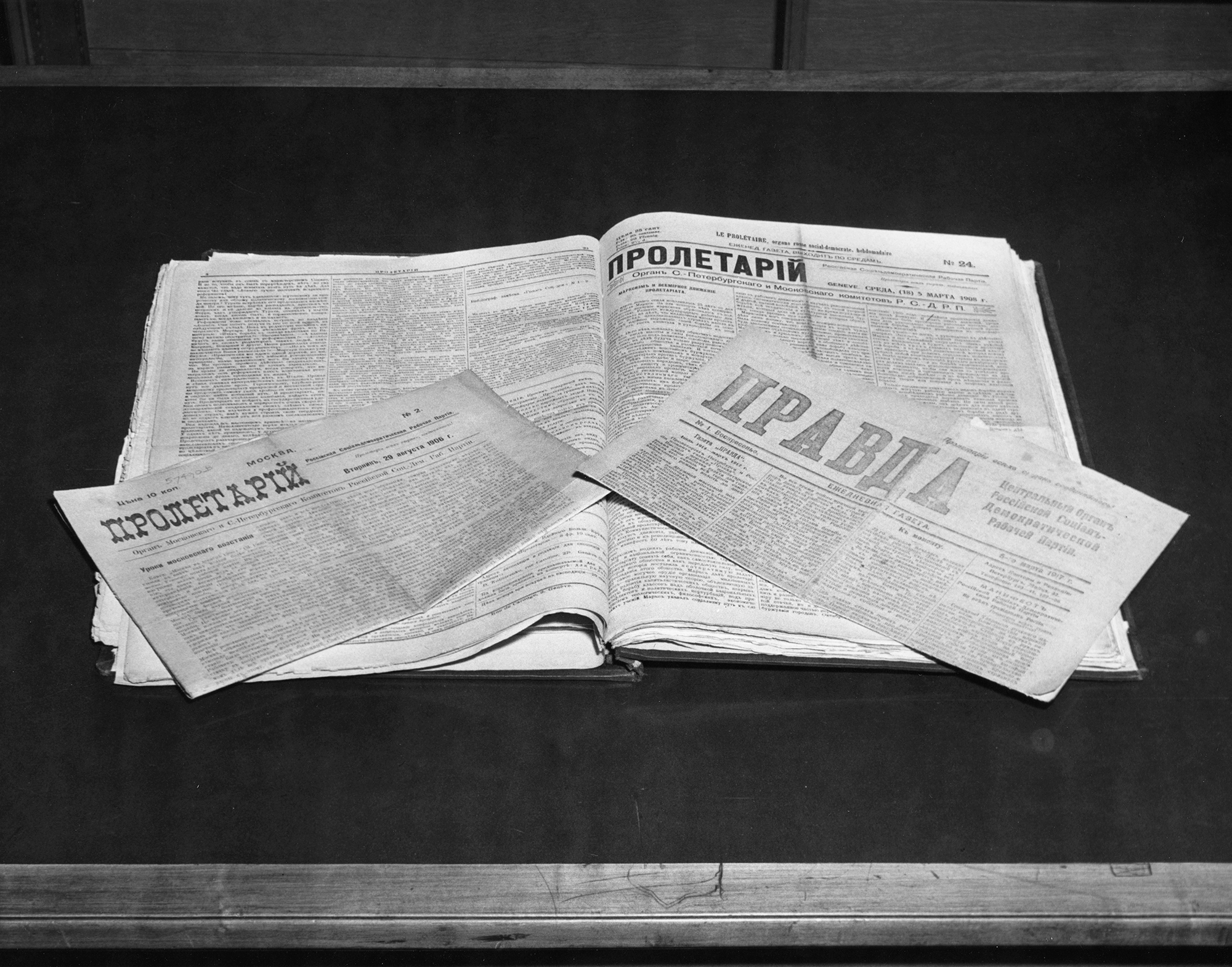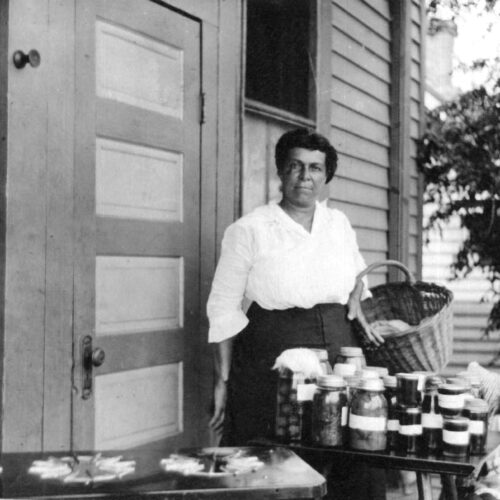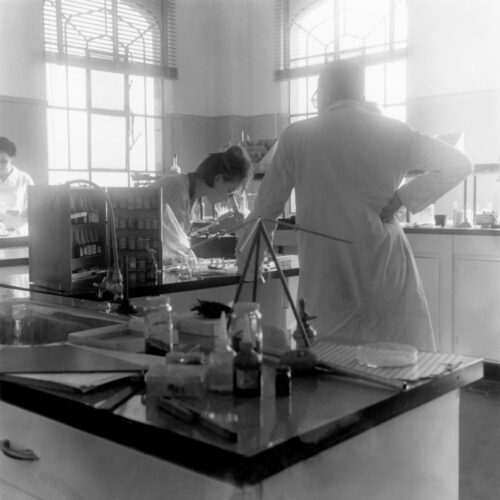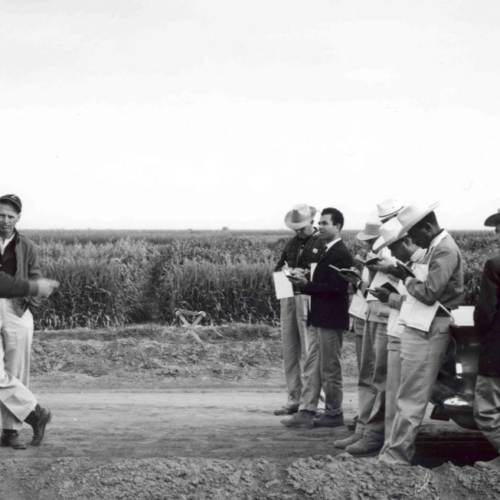Our New Research series highlights recently published reports written by researchers who have received stipends from RAC to pursue their studies in our archival collections. In this edition of the series, the authors have used the records of the Ford Foundation, the General Education Board, the Rockefeller Foundation, the Russell Sage Foundation, the Laura Spelman Rockefeller Memorial, as well as archival materials from the Office of the Messrs. Rockefeller.
“Designing a Pictorial Language: Rudolf Modley’s Search for Philanthropic Support for the Development of a Universal System of Symbols” by Lee Davis
In “Designing a Pictorial Language: Rudolf Modley’s Search for Philanthropic Support for the Development of a Universal System of Symbols,” Lee Davis looks at efforts to promote universal graphic symbols as a means to enhance global understanding. His study points to the efforts of Rudolph Modley, who together with anthropologist Margaret Mead in 1966, created the nonprofit Glyphs, Inc. to foster research, classification, and promotion of these symbols.
Dr. Davis notes that while scholars have already mined the rich Margaret Mead Papers at the Library of Congress for material on this endeavor, the holdings of the Rockefeller Archive Center are the key source for understanding Modley’s efforts. Starting in the 1930s, Modley had turned to a number of philanthropies, including the Russell Sage Foundation, the General Education Board, and, later, the Ford Foundation, for support for his project on universal symbol systems. Davis observes that Modley’s record for garnering foundation support was very checkered; he was better at conceptualizing a vision than in articulating it in a way that captured grantmakers’ sustained enthusiasm.
Lee Davis is the co-director of the Center for Social Design at the Maryland Institute College of Art (MICA). Prior to his faculty appointment at MICA, he was co-founder and served for sixteen years as co-CEO and chief innovation officer of NESsT, an incubator for social enterprise start-ups in emerging markets.
“Cultivating Moderates: East-West Exchanges and International Influences on Poland’s Transition to Democracy,” by Gregory F. Domber
Gregory F. Domber’s research report, “Cultivating Moderates: East-West Exchanges and International Influences on Poland’s Transition to Democracy,” describes his data-mining project drawing on the program files and grant records of scholarly exchange programs in Central and Eastern Europe sponsored by the Ford Foundation and Rockefeller Foundation during the Cold War.
Dr. Domber uses the techniques of data science and digital humanities to better understand the extent to which this philanthropic support may have enabled Poland’s transition from communism to capitalist democracy. Specifically, his project compares East-West exchange participants across multiple decades with participants in Poland’s 1989 “Round Table” negotiations; these negotiations were a turning point, creating the framework for the semi-free elections that brought the first non-Communist government since 1945 to power.
Using social network analysis, Domber asks how pathways of influence and shifts in perception might be measured, mapped, and visualized to better illustrate exogenous influences on the democratization process. As Domber notes, the project is interdisciplinary. It combines traditional qualitative techniques used by historians with digital network analysis tools to better understand the complex, overlapping networks of political revolution and international exchange that came together during this important moment in Polish history.
Gregory F. Domber is a lecturer in history at California Polytechnic University at San Luis Obispo.
“The Rockefeller Foundation and Scientific Collaboration in Late Colonial India” by Manikarnika Dutta
In her research report, “The Rockefeller Foundation and Scientific Collaboration in Late Colonial India,” Manikarnika Dutta looks at the circumstances surrounding the creation of the All-India Institute of Hygiene and Public Health (AIIHPH) in Calcutta. She argues the Rockefeller Foundation’s funding of AIIHPH was part of its broader efforts to foster institutions for the study of public health-related science around the world.
In this case, the Rockefeller Foundation’s plans had to navigate through the British colonial administration, as well as the growing voices for an Indian presence in this new institution that would conduct scientific research and also train medical professionals in the public health fields. Dr. Dutta notes that the decision to select Calcutta (today Kolkata) as the location for the institute was based both on the international status of the city as well as on the presence of the Calcutta School of Tropical Medicine, which would raise the caliber of the AIIHPH.
Manikarnika Dutta is a research associate in the University of Oxford’s Faculty of History/Centre for the History of Science, Medicine, and Technology. Her area of expertise is the history of colonialism and medicine with a special focus on the British Empire in South Asia.
“Thomas Whittemore, Fundraiser for Russian Refugees” by George T. Kosar
For historian George T. Kosar, Thomas Whittemore is an intriguing intellectual with a very wide array of interests. He was an art historian, art collector, and archaeologist, and also founded the Byzantine Institute dedicated to preserving Byzantine art and architecture. Dr. Kosar’s visit to the RAC was centered on gaining a deeper understanding of Whittemore’s abilities as a fundraiser for his many projects.
Of particular interest was the way Whittemore succeeded in finding philanthropic support for his efforts to help refugees from the Russian Revolution. John D. Rockefeller, Jr. contributed to these endeavors, and so did others in his social circles. In “Thomas Whittemore, Fundraiser for Russian Refugees,” George T. Kosar observes that this episode is an example of how Whittemore built networks of supporters who advocated for him and introduced him to ever wider circles of people with wealth and influence. Whittemore had an effective combination of cultural competence, personal appeal, and organizational efficiency. Together, these skills lent themselves to long-standing relationships that served him and his work well for decades.
George T. Kosar is currently the assistant vice president for institutional partnerships at Georgetown University. Prior to that, he was a research associate at Harvard University’s Davis Center for Russian and Eurasian Studies.
About the RAC Research Stipend Program
The Rockefeller Archive Center offers a competitive research stipend program that provides individuals up to $5,000 for reimbursement of travel and accommodation expenses. Learn more on our Research Stipend page.



